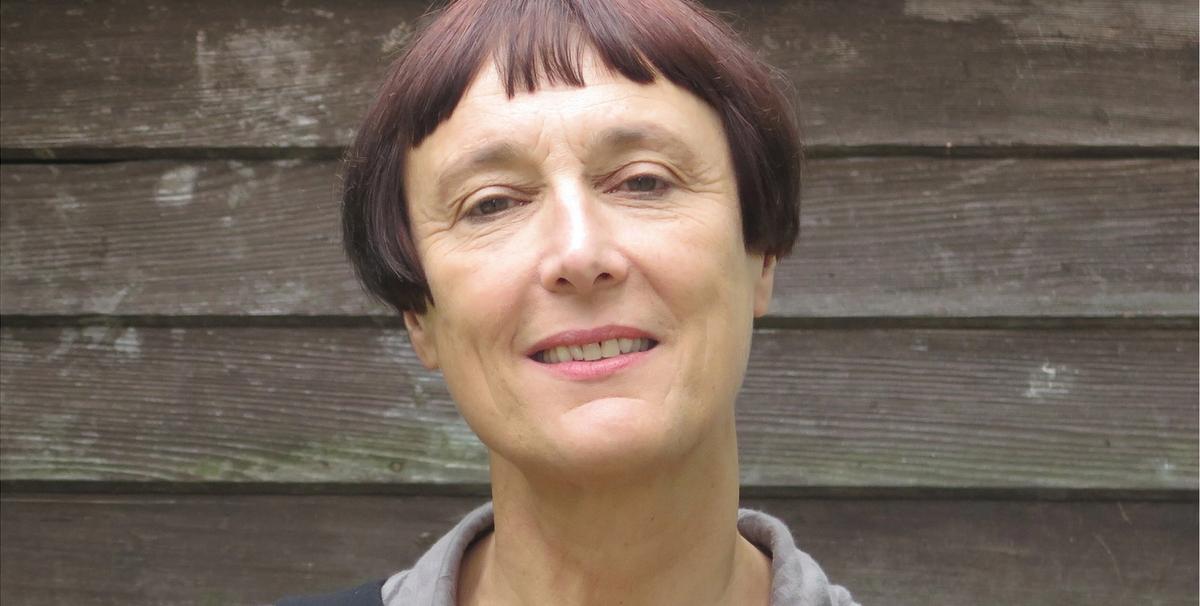“We must stop Trump,” declared the UK artist Cornelia Parker yesterday, 1 June, reminding the audience at the inaugural Norman Foster Foundation forum held in Madrid’s Teatro Real that the US president had promised to withdraw the US from the 2015 Paris climate change deal. Few among the leading architects, designers, curators, economists, technocrats and philanthropists assembled needed reminding.
Because of President Trump’s social medium of choice, Parker urged the parents at the forum to encourage their children to Tweet him directly on @POTUS. It was too late. Within hours of the forum—entitled Future is Now—closing, the US president had announced that as far as the US government was concerned, the deal was off.
"Our kids are the ones who will pay the price for his ignorance, he might listen to those who don’t yet have a vote," she tells us. "Hopefully there will be a huge worldwide backlash to his pronouncement, but why isn’t [the British] government adding its voice to those who are condemning his action?" Parker is the official artists for the UK general election, Instagramming @generalelection2017 in a non-partisan way.
The former Turner prize nominee and the Danish-Icelandic artist Olafur Eliasson were in conversation at the end of the one-day event organised by the foundation created by the leading UK architect. Eliasson explained why he transported 12 blocks of ice from Greenland to melt in the centre of Paris during the 2015 United Nations conference on climate change as a way to make data about the subject something that people could touch and feel. They knew the ice was cold, but people still felt moved to touch Ice Watch, he said.
Parker and Eliasson have a longstanding interest in finding creative ways to address the problems facing the built and natural environments. Parker is working with another of the speakers at the forum, Mariana Mazzucato, an economist who leads the Institute for Innovation and Public Purpose at University College London. Eliasson’s social activism includes projects such as Little Sun, bringing cheap, portable, solar-powered lights to people in rural areas across the world, and Green light, the nomadic workshop for migrants and refugees now taking place at the Venice Biennale (until 26 November).
The Madrid event, with invited speakers who reflected Foster’s starchitect status, coincided with the launch of the new home of his foundation in a palatial former townhouse turned embassy in the Spanish capital. It houses the Pritzker Prize-winning architect’s archive and is a non-profit centre for interdisciplinary research and development in the fields of architecture, engineering and urbanism, aiming to help find solutions to some of the planet’s most pressing problems.
Foster, who epitomises the techno-optimistic, can-do attitude that set the tone of the event, stressed in his keynote address how many of the world’s inhabitants went to bed hungry, lacked access to clean air, water and basic sanitation and had to use “dirty” fuel for cooking, heating and lighting. He reminded the audience that previous generations had found solutions to seemingly impossible problems, recalling that at the end of the 19th century, London and New York, which depended on horse power to transport goods and people, faced a “manure crisis”. Futurologists predicted that they would be buried in the stuff—but then the car was invented. A car enthusiast, Foster recently restored the Swiss architect Le Corbusier’s luxurious car, designed by a French aviator, hence the name Avions Voisin. It is on display inside the entrance “pavilion of inspiration” at his foundation, alongside models of every plane, helicopter and glider that Foster has flown.
Speakers at the event included the mayor of Madrid, Manuela Carmena, and the former mayor of New York, businessman and philanthropist Michael Bloomberg. Spain’s minister of culture attended part of the day, which featured panellists and speakers ranging from fellow Pritzker Prize-winning architect Alejandro Aravena to Jonathan Ive, the chief design officer of Apple, and the artist and architect Maya Lin. Moderators included Christiane Amanpour of CNN who quipped that she and her panellist were among the "do-gooders".
The Stanford-based, right-of-centre historian, Niall Ferguson, challenged the “techno-optimists” and played the role of the “Scottish voice of doom” with aplomb, pointing out that there is a growing backlash in Middle America and Middle Europe from those who face losing their jobs or deskilling in the face of robots, driverless vehicles and other technological changes. Inventions have unintended consequences, he said. "Resistance might be futile," but it will grow, noting the onging strike against Uber by Madrid's taxi drivers.
Bloomberg, whose foundation supported Eliasson’s Ice Watch in Paris in 2015, was among the optimists, but also a realist, stressing the need for public and private partnerships. Cities working with companies and philanthropists, not federal government, get big and small things done. “It’s where the rubber meets the road,” he said.
Infrastructure was a major theme, ranging from sewers and roads to drones delivering medical supplies across Africa, a project that the Norman Foster Foundation is working on. Bloomberg mentioned Elon Musk’s research into a high-speed underground link between Los Angeles and San Francisco, which would transport commuters in less than an hour. Musk’s vision, which sounds futuristic in a Foster-esque way, is a long way from the infrastructure President Trump wants to build in California: the proposed security wall between the US and Mexico. Bloomberg quipped to the converted, quoting Winston Churchill's backhanded compliment to the US: "You can always rely on America to do the right thing. Once it has exhausted the alternatives.”


